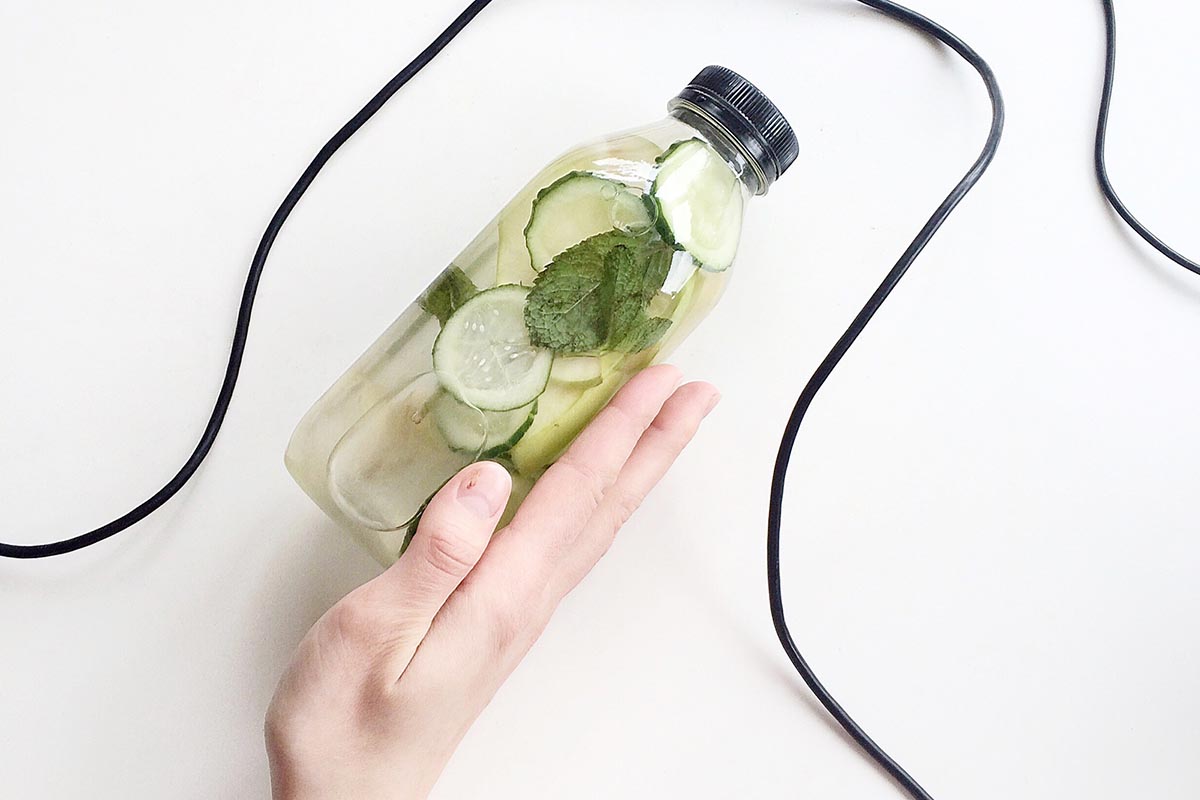The Essential Hydration Guide: Water Intake on Creatine
Understanding the interplay between nutrition, supplementation, and lifestyle choices is key in the journey toward a healthier and happier life.
Hydration and the strategic use of supplements like creatine have emerged as pivotal elements. This article integrates these aspects into the broader context of modern health guidelines, presenting a holistic approach to wellness.
Hydration remains an indispensable part of any health regimen. The human body comprises approximately 60% water, which plays a crucial role in every cellular process, from nutrient transport to temperature regulation.
The conventional wisdom of drinking eight 8-ounce glasses of water a day has evolved into a more nuanced understanding that considers individual needs, lifestyle, and environmental factors.
For a truly healthy and happy life, it’s essential to tailor your hydration needs to your body’s signals. Light to pale yellow urine, absence of thirst, and consistent energy levels throughout the day are reliable indicators of proper hydration.
Moreover, in the face of life’s varying demands—from intense physical activity to the challenges of climate—adjusting your water intake accordingly ensures that your body remains resilient and thriving.
Creatine Supplementation: A Catalyst for Enhanced Wellness
Creatine supplementation, once predominantly the domain of athletes and bodybuilders, has found its place in the broader spectrum of health and wellness.
Recognized for its capacity to increase high-intensity exercise performance, creatine also has implications for brain health, aging, and overall muscle maintenance.
When incorporating creatine into your health regimen, it’s crucial to consider its effects on the body’s hydration status. Creatine increases water retention in muscle cells, a process that can enhance muscle growth and performance but also necessitates a heightened focus on fluid intake.
To harmonize the benefits of creatine with your body’s hydration needs, an additional 1-2 liters of water per day is recommended.
This is in addition to the baseline hydration needs, which are approximately 3.7 liters for men and 2.7 liters for women, as per the U.S. National Academies’ guidelines.
Integrating Hydration and Creatine into Your Lifestyle

The new rules for a healthy and happy life advocate for a personalized approach to hydration and supplementation. Start by assessing your daily water intake and adjust based on your activity level, environmental conditions, and any supplements like creatine that you may be using.
Remember, the goal is not just to avoid dehydration but to optimize your body’s functionality and well-being.
In addition to hydration, consider the strategic use of creatine for its comprehensive health benefits. Creativity offers a versatile supplement option.
Whether you focus on enhancing physical performance, supporting cognitive function, or simply maintaining muscle strength as you age. Just ensure that its integration into your diet is accompanied by suitable adjustments in your water consumption.
Crafting Your Path to Wellness
The pursuit of health and happiness is a dynamic and personal journey. By embracing the principles of adequate hydration and considering the thoughtful use of supplements like creatine, you’re taking proactive steps towards a more vibrant and fulfilling life.
These new rules for health and happiness not only cater to the body’s fundamental needs but also open the door to enhanced wellness and longevity.
Remember, the most effective health strategy is one that is tailored to your unique lifestyle, needs, and goals, ensuring that you can live each day to its fullest potential.
Find a Form of Exercise You Enjoy
One of the best solutions to a healthy and happy lifestyle is to exercise regularly. Not only does it keep your body weight in control it also increases immunity, lowers blood pressure and cholesterol, and makes for a healthier and stronger heart.
One of the leading causes of many life-threatening diseases is obesity, and exercise is one of the ways you can prevent this from happening to you. It won’t reduce your weight on its own, however.
There are other lifestyle changes you need to make.
Finding a form of exercise you enjoy means you’re more likely to keep doing it. Perhaps you need to find a hobby that gets you out more and keeps you active.
Take up running, walking or why not consider getting some golf gear and spending time at your local golf range?
Limit Your Screen Time
How much time do you spend on your mobile device? If your eyes are always glued to the screen, how can you truly appreciate what’s going on around you?
Mobile phones, tablets, and other kinds of technology can be a disruption and distraction, and quite often, using them is just plain rude.
Drink More Water

If you’re trying to reduce the amount of food you eat, try drinking more water. It makes you feel full and not ravenously hungry.
This means you won’t find yourself snacking or putting more food on your plate than you need. It’s also a way of stopping yourself from drinking sugary beverages.
Staying hydrated and knowing how much water you should drink – also is vital for your general health. Your body depends on water to survive, and every tissue, cell, and organ in your body needs this water to work correctly.
Fluids carry nutrients to your cells, flush bacteria from your bladder, and prevent constipation. You can use other drinks and food to help you stay hydrated, but many of these will add extra calories to your diet.
Eat Less Meat

The most obvious benefit of eating less meat is that it helps to save the animals, and your carbon footprint will be much smaller. There are also several more personal reasons for reducing the amount of meat you eat or ditching it altogether.
Take a look around the world, and you’ll find there are a number of spots where the concentration of people living 100 years or more is much higher. The secret to a longer life is to eat less meat and more fruits, vegetables, whole grains, and legumes.
Eating less meat decreases your chance of heart disease, certain types of cancers, diabetes, strokes, and many other chronic illnesses. It may surprise you to learn that one extra portion of vegetables every day can slash your risk of heart disease by as much as 11%.
On the go, you can always have with you one of the Lectin free protein bars.
Stop Being a Worrier

Do you consider yourself a worrier? Is it important that you’re prepared for the worst, with several plans to cover all eventualities? However, did you realize that worrying is very counter-productive? You should know how to reduce worry and anxiety.
Constantly over-thinking things and coming up with an endless number of worst-case scenarios means you rarely achieve anything.
Try to focus on the present more than the past or the future. If you find yourself in a worrying situation, try to maintain perspective and think more about what is actually likely to happen. Most important of all is to have the confidence that you’ll get through it whatever life throws your way.
Get Enough Quality Sleep
Getting enough sleep means your brain has the time to protect itself from toxic overload.
During the night, when you’re fast asleep, there’s a brain-cleaning crew hard at work. If they’re not allowed to do their job properly, you’ll experience brain fog, poor memory, or absent-mindedness in the short term.
Sleep should never be considered a luxury as it’s an essential part of your brain’s daily maintenance and helps to keep it sharp and agile.
Spend Quality Time with Your Loved Ones

One of the most significant sources of happiness in your life is spending quality time with friends and family. Keeping your social connections can also boost your intellect and give you a sense of support. Interacting with friends and family regularly makes you happier and tension-free.
People who shun social interactions are going to end up feeling lonely, and this makes them more at risk of getting a heart attack, stroke, and diabetes.
Rest and Relax More

Are you on the go most of the time? It might not be by choice because the demands of work, relationships, debt, the pressure to perform, produce and be perfect is higher now than it has ever been.
We’re always online and hooked into an endless stream of technology, which means we’re always switched on.
Finding ways to unwind, relax, and recharge your batteries can be difficult.
To reduce the risk of burnout or simply running yourself into the ground, you must learn how to relax. That doesn’t mean you need to spend a fortune treating yourself to a week in an exotic spa or traveling to a tropical island and lying on the beach all day.
Find a few moments in your day to relax, restore, and just be. One good way to do this is with breathing exercises as this helps to calm your mind and relax your body.




















